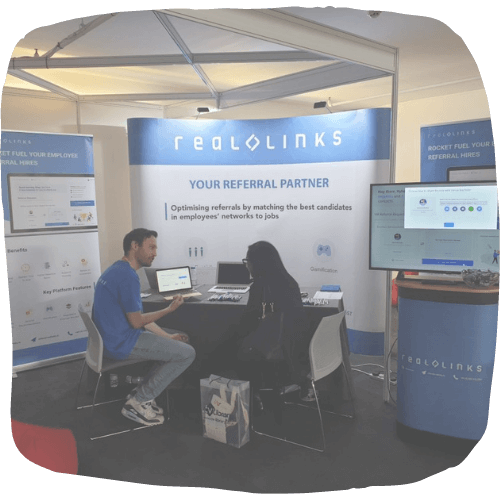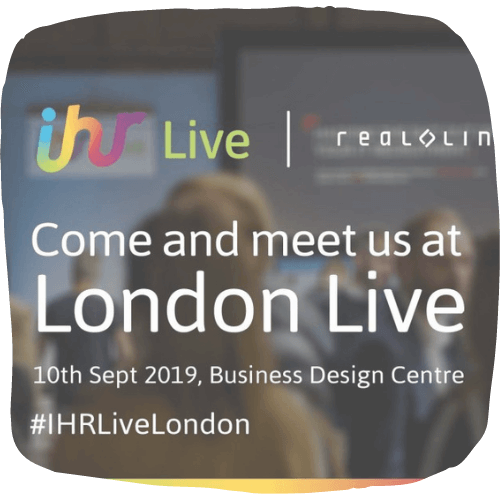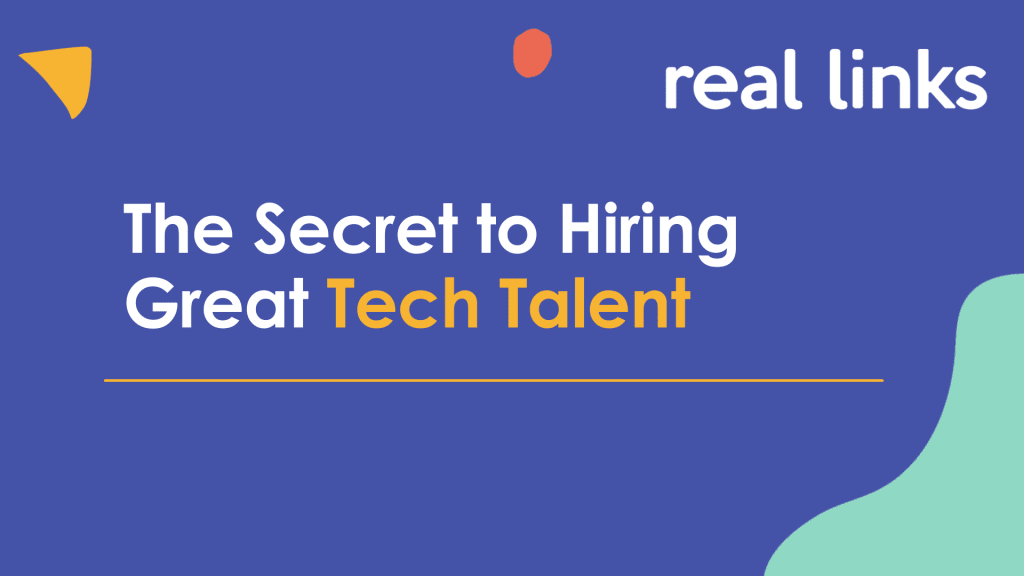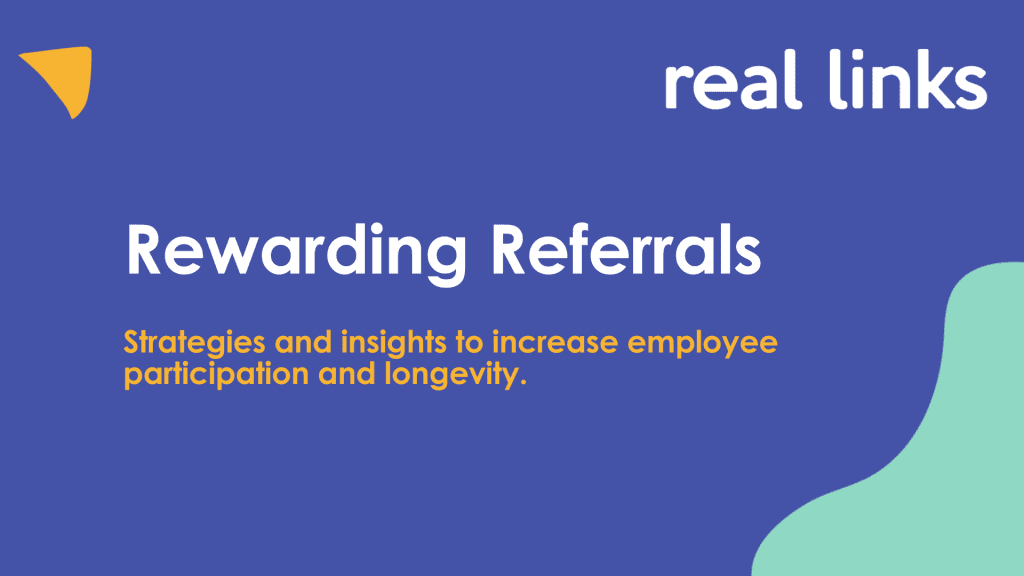We recently surveyed 100 employees to better understand the current landscape and shortcomings of referrals. Our survey base spanned multiple industries, geographic locations and job roles, with varying levels of seniority. We have now released the findings in a free whitepaper, “Rewarding Referrals: Strategies & Insights to Increase Employee Participation & Longevity”.
A critical first step to increase employee participation with your referral scheme is running a focus group. This allows you to get a thorough understanding of what motivates your employees not only to refer, but to engage with the scheme in the first place so you can formulate a referral strategy that will yield high returns.
why your referral scheme needs to be unique
Too many organisations create and implement some form of referral scheme, without ever engaging with the primary users, their employees. However, we know from extensive experience that in order for it to work effectively, a business’ referral scheme needs to be as unique as their workforce is. The referral process and the type of rewards must be tailored to the people you’re trying to engage, your employees.
For example, according to our findings, 88% of companies only offer money as a referral bonus. This isn’t incorrect per se, but money won’t be the right motivator for everyone. Do you really know what makes your employees tick?
using focus groups to get the information you need from your workforce
So how can you uncover what does motivate people? Or, if you have a referral scheme in place, how can you really get under the skin of why people don’t engage with it so you can improve the process based on that feedback?
A simple survey might suffice (if you can get people to take the time to fill it out), but we have found that by far the best way to really understand your employees is to run one, or a series of focus groups with a cross section of your workforce.
There are two main purposes of a focus group. To confirm ideas you already believe to be true and to uncover information and views you weren’t already aware of.
An effective focus group will lay strong foundations for a successful referral scheme. Based on our experience, we’ve outlined the key elements for running a mutually beneficial employee focus group.
8 steps to running successful focus groups
- Choose your discussion topic carefully
- Plan your questions/discussion prompts in advance
- Prepare a focus group questionnaire
- Appoint a notetaker
- Select participants
- Kick off the discussion
- Get equal input from the group
- Analyse the results and feedback to the group
1. choose your discussion topic carefully
It’s important not to try to fit too many topics into the allotted time, as you’ll struggle to get the detail you need. Select two key topics and keep those in mind throughout. This will make it easier to refocus if you find the conversation is drifting. These topics could be as simple as ‘what would motivate you and why’ and ‘challenges with the current referral scheme’
Quick tip – the optimal time for a focus group to remain productive is between 45-90 minutes.
2. plan your questions/discussion prompts in advance
In advance of the focus group run a briefing meeting with other colleagues organising the group and get a list of questions you’d like to get answers to. Although the focus group discussion needs to be organic to uncover information you may not even have considered important, you need to be clear beforehand which questions are most important to create actionable information.
3. plan a questionnaire for your focus groups
Once you’ve planned your questions and discussion prompts, organise them into a questionnaire with plenty of space for notes. Put the most important questions first, and keep in mind it’s more important to have an interesting and fruitful discussion than it is to get through all your questions. You can always follow up later.
Quick tip – have a box at the end of each question specifically to highlight remarkable insights so they don’t get lost.
4. appoint a notetaker
It might sound obvious, but identifying the best person in the organisation to take high quality notes will be critical to ensuring the findings are clear. Bear in mind the best person for that role may not be from within your department.
Quick tip – as well as having a notetaker in the session, audio or video record the session so you can refer back to it afterwards, just in case anything gets missed.
5. select your participants
It’s critical to gain the views of a wide cross-section of your organisation. What motivates individuals in the tech department may not be the same as what motivates the finance department. Gathering feedback from multiple pay grades is also important, as it could be the case that those on a higher wage are less motivated by money and more by time off for example.
Quick tip – in terms of the make-up of the group, in a larger organisation you might choose to run sessions with departments individually. This is for two reasons. One it may encourage quieter individuals to speak up as they’re amongst people they know and two you can have a more productive discussion as their views are likely to have more similarities – allowing you to use the time to drill down in a lot more detail. In smaller organisations a cross functional group is probably more realistic.
6. kick off the discussion
To warm the group up, start off by asking a simple, open question. As the conversation starts to flow, you can then begin to cover off more specific questions.
7. get equal input from the group
Be mindful that everyone’s opinion is important. If you feel the discussion is being led by one or two more outspoken individuals, ensure you prompt quieter members of the group to answer and give them the time and space to do so.
8. analyse the results and feedback to the group
Hopefully your focus group has provided you with plenty of interesting angles, and actionable ideas to shape your employee referral strategy. After all of your focus groups have taken place compile and analyse the common themes and resulting actions. Be sure to remember to feedback to the group (s) a high level version of the findings and the key actions you’re going to take. This is important to ensure employees don’t feel their time was wasted and that their opinions were valuable to you.
At Real Links, one of the first steps we take with every organisation we work with is to hold focus groups with their employees. We’ve run literally hundreds of these sessions, so if you think you might need support get in touch.
If you’re interested in learning more about how you can transform referrals into a key source of hires download our whitepaper now.












